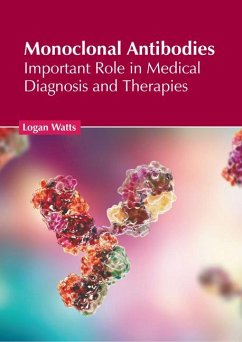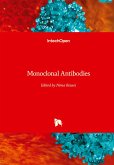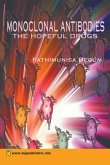A monoclonal antibody refers to an antibody formed through cloning a distinctive white blood cell. Antibodies are glycoproteins produced through differentiated B lymphocytes known as plasma cells in response to exposure to antigens. The range of antibody responses to different target antigens occurs due to gene recombination process in the hyper-variable areas of antibodies. Monoclonal antibodies (mAbs) are formed through the similar clones of B lymphocytes in response to a specific antigen. There are numerous properties of mAbs including antigen-binding site region, identical downstream functional effects, protein sequence and binding affinity for their targets. These antibodies are often given through the subcutaneous route. They are helpful in diagnosing various diseases such as cancer and hormonal disorders. These antibodies are also useful in treating various other conditions like asthma and AIDS. This book elucidates the prospective developments with respect to monoclonal antibodies. It presents researches and studies performed by experts across the globe. Scientists and students actively engaged in the therapeutic applications of antibodies will find this book full of crucial and unexplored concepts.
Hinweis: Dieser Artikel kann nur an eine deutsche Lieferadresse ausgeliefert werden.
Hinweis: Dieser Artikel kann nur an eine deutsche Lieferadresse ausgeliefert werden.








